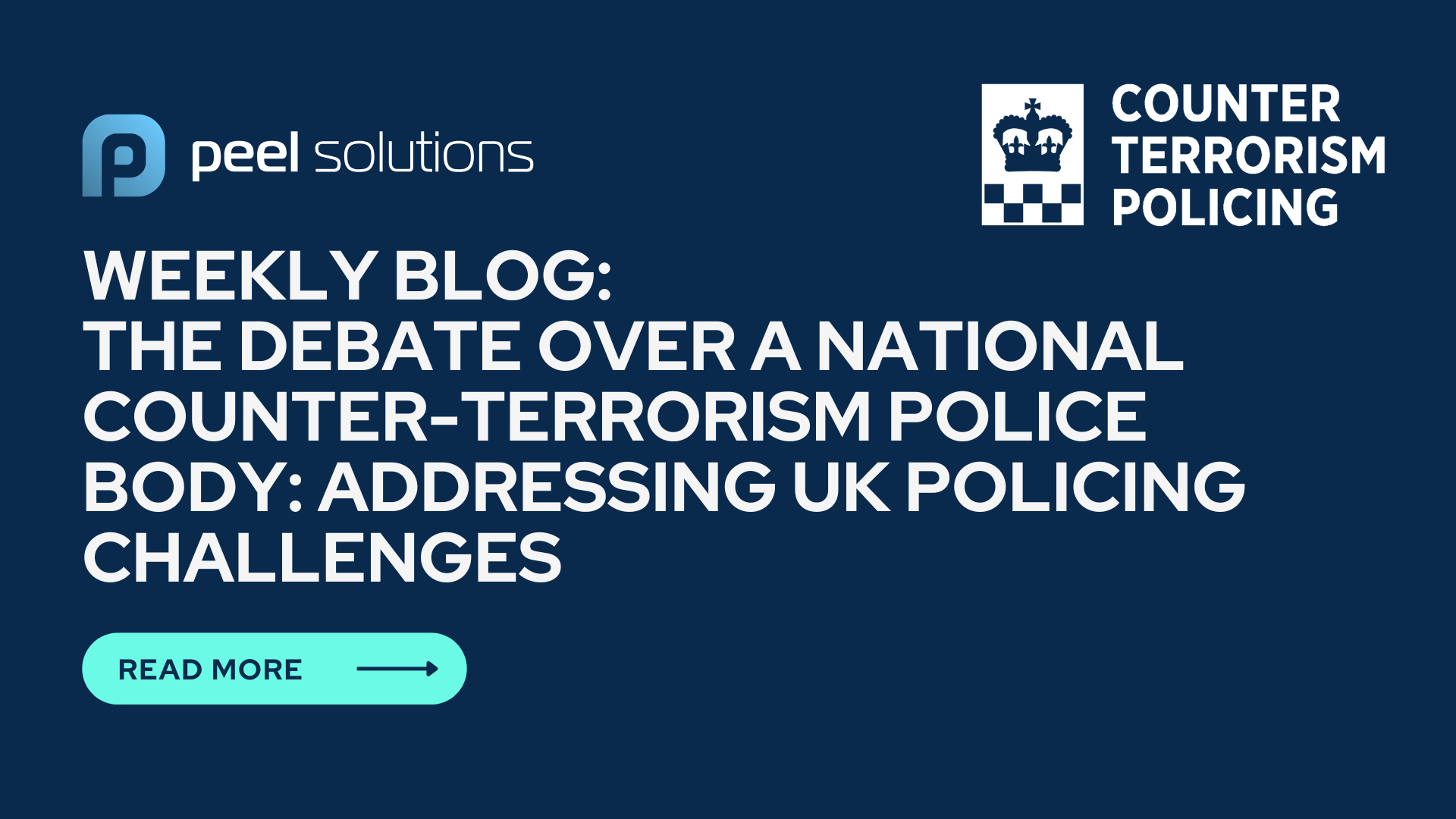The Debate Over a National Counter-Terrorism Police Body
In response to the evolving landscape of terrorism and serious organised crime, UK police chiefs are considering a proposal that could fundamentally reshape the nation's security infrastructure: the formation of a national counter-terrorism police body. This initiative represents a significant shift from the current structure, where counter-terrorism efforts are managed by a network of regional units under local forces. With discussions underway to centralise these units into an independent entity covering England and Wales, this could mark the most substantial overhaul of UK policing since the 1960s. This blog will delve into the motivations behind this proposal, explore the potential benefits of a centralised approach, and address the critical concerns raised by various stakeholders, offering a comprehensive overview of this pivotal debate.
Why a National Counter-Terrorism Police Body Is Being Proposed
Fragmentation and Gaps in Current Policing Structures
Currently, counter-terrorism policing in the UK operates through a network of 11 units, coordinated by the Metropolitan Police's headquarters. These units are primarily staffed by officers seconded from various local forces. This arrangement, while intended to leverage local expertise, has led to several persistent challenges:
- Staffing Instability: The reliance on "borrowed" officers often results in inconsistent staffing levels and expertise. Officers can be recalled to their home forces at any time, disrupting ongoing investigations and operations. This instability makes long-term planning and strategy implementation difficult.
- Coordination Issues: Varying regional approaches can hinder effective communication and swift decision-making, which are crucial in counter-terrorism operations. Differing protocols and systems across units can lead to delays and misunderstandings, potentially jeopardising the success of critical operations.
- Resource Constraints: Local forces may struggle to allocate sufficient resources to counter-terrorism efforts amidst other pressing policing priorities. Funding and equipment can vary widely between regions, leading to disparities in capability and effectiveness.
These issues highlight the need for a more unified and streamlined approach, one that can ensure consistency and efficiency across the country.
Strategic Drivers Behind Centralisation
The nature of terrorist threats has evolved significantly in recent years. Digital radicalisation, sophisticated international networks, and threats that transcend regional boundaries necessitate a more unified and agile response. A centralised counter-terrorism force could:
- Enhance National Strategy: Provide a cohesive and comprehensive national strategy to address complex and evolving threats. This would ensure a consistent approach across all regions and enable better coordination of resources and intelligence.
- Streamline Operations: Improve operational efficiency and coordination by removing bureaucratic hurdles and streamlining communication channels. A single national body could react more quickly and decisively to emerging threats.
- Mirror Successful Models: Learn from models like the Federal Bureau of Investigation (FBI) in the United States, which demonstrates the potential advantages of a national approach in terms of resource allocation, intelligence sharing, and operational effectiveness.
Potential Benefits of a Centralised Approach
Enhanced Intelligence Integration
A unified national body could revolutionise intelligence sharing and analysis. Centralising counter-terrorism efforts would:
- Consolidate Resources: Enable the consolidation of intelligence resources, including databases, technology, and expert personnel. This would create a more comprehensive and accessible pool of information.
- Improve Threat Understanding: Lead to a more comprehensive and nuanced understanding of threats by combining data from various sources and regions. This would allow for better identification of patterns and trends.
- Enhance Coordination: Improve coordination in response strategies by ensuring that all units are working from the same intelligence picture and following the same protocols.
This integration is vital in preempting and disrupting terrorist activities. According to a recent hypothetical report, effective intelligence sharing can reduce the risk of successful attacks by up to 30%. A centralised system would facilitate this sharing, ensuring that critical information reaches the right people at the right time.
Consistency in Training and Operational Standards
Standardising training and operational protocols across a national force could:
- Ensure High Preparedness: Guarantee a uniformly high level of preparedness and response capability across the country. This would ensure that all officers are trained to the same standards and equipped to handle a wide range of threats.
- Foster Shared Understanding: Officers would receive consistent training, fostering a shared understanding of procedures, tactics, and legal frameworks. This would improve communication and collaboration during joint operations.
- Enhance Interoperability: Improve interoperability during joint operations by ensuring that all units use the same equipment, technology, and protocols. This would make it easier for different teams to work together seamlessly.
This consistency is crucial in maintaining public confidence and ensuring effective counter-terrorism measures. It would also help to ensure that all officers are treated fairly and that best practices are shared across the organisation.
The Challenges and Concerns
Risk to Local Intelligence and Community Links
One of the primary concerns is the potential erosion of local intelligence networks and community relationships. Local police forces have cultivated trust within their communities, enabling effective information gathering and early intervention. Centralising counter-terrorism efforts could:
- Distance Operations: Distance operations from local contexts, potentially leading to a loss of valuable local knowledge and understanding.
- Weaken Community Understanding: Potentially weaken the nuanced understanding of specific community dynamics and cultural sensitivities that are crucial for effective intelligence gathering.
- Decrease Grassroots Intelligence: Lead to a decrease in the quality and quantity of grassroots intelligence, which is often vital in preempting terrorist activities.
This shift might lead to a decrease in the quality of grassroots intelligence, which is often crucial in preempting terrorist activities. Local officers know their communities and can often spot signs of radicalisation or suspicious behaviour that might go unnoticed by a centralised body.
Accountability and Oversight
Establishing a national body raises complex questions about accountability and governance. A centralised counter-terrorism unit may:
- Complicate Oversight: Complicate existing oversight mechanisms, as it would require a new layer of scrutiny and accountability.
- Raise Transparency Concerns: Potentially lead to concerns about transparency and public trust, particularly if the organisation is perceived as being too powerful or unaccountable.
- Require Robust Structures: Necessitate robust and clear accountability structures to ensure that the organisation operates within legal and ethical boundaries.
Ensuring robust and clear accountability structures will be essential to maintain public confidence in such a national entity. This would involve establishing independent oversight bodies, clear reporting mechanisms, and strong safeguards against abuse of power.
Resource Allocation and Funding
The creation of a national counter-terrorism force necessitates substantial financial investment and resource reallocation. There is a risk that diverting funds to establish and maintain this new body could:
- Reduce Local Budgets: Lead to reduced budgets for local policing initiatives, potentially impacting other critical areas of law enforcement.
- Impact Local Law Enforcement: Inadvertently impact the effectiveness of local law enforcement in addressing other critical areas, such as neighbourhood policing and crime prevention.
What This Could Mean for Broader UK Policing
Implications for Policing Culture and Collaboration
The introduction of a national counter-terrorism body could significantly influence the culture within UK policing. It may:
- Foster Hierarchical Structure: Potentially foster a more hierarchical structure, which could affect communication and decision-making processes.
- Affect Collaboration: Affect collaboration between different units and forces, potentially leading to tensions or misunderstandings.
- Require Balanced Approach: Necessitate balancing national priorities with local autonomy to ensure that the new body works effectively with existing police forces.
Lessons from Past Structural Changes
Reflecting on previous reforms, such as the establishment of the National Crime Agency (NCA), offers valuable insights. These experiences underscore the importance of clear planning, effective communication, and robust consultation when implementing structural changes in policing. It is essential to learn from past successes and failures to ensure that the new national counter-terrorism force is effective and accountable.
Conclusion
The proposal for a national counter-terrorism police body represents a pivotal moment in the evolution of UK policing. While the potential for enhanced coordination, resource utilisation, and intelligence sharing is significant, it is imperative to carefully consider the associated challenges. Maintaining local intelligence capabilities, ensuring robust accountability, and preserving the integrity of community relationships are critical factors that must be addressed. A balanced approach that integrates national efficiency with local effectiveness will be essential to uphold the safety and trust of the communities served.
We invite our readers to share their perspectives on this proposed restructuring. How do you envision the balance between national coordination and local engagement in counter-terrorism efforts? Join the conversation on our LinkedIn to discuss the future of UK policing.
Source: UK police chiefs draw up plans for national counter-terrorism force

James Jeram
James Jeram joined Peel Solutions in 2023 to establish and lead its professional services and consultancy division. With over eight years of experience supporting UK law enforcement, central government, and the wider public sector, James brings a wealth of expertise and a deep commitment to driving positive change across these vital industries. His dedication to maintaining strong human connections whilst delivering innovative solutions stems from his extensive experience in the sector and understanding of what truly makes a difference in law enforcement support services.

